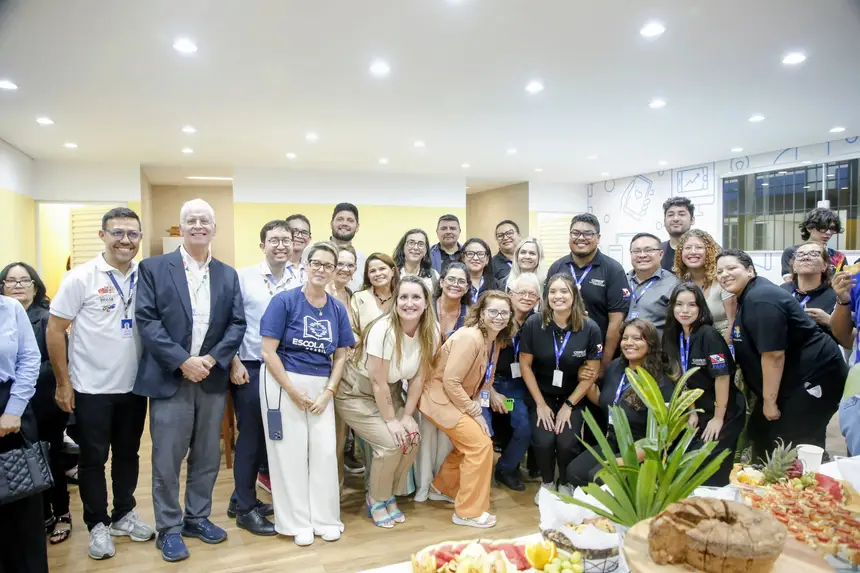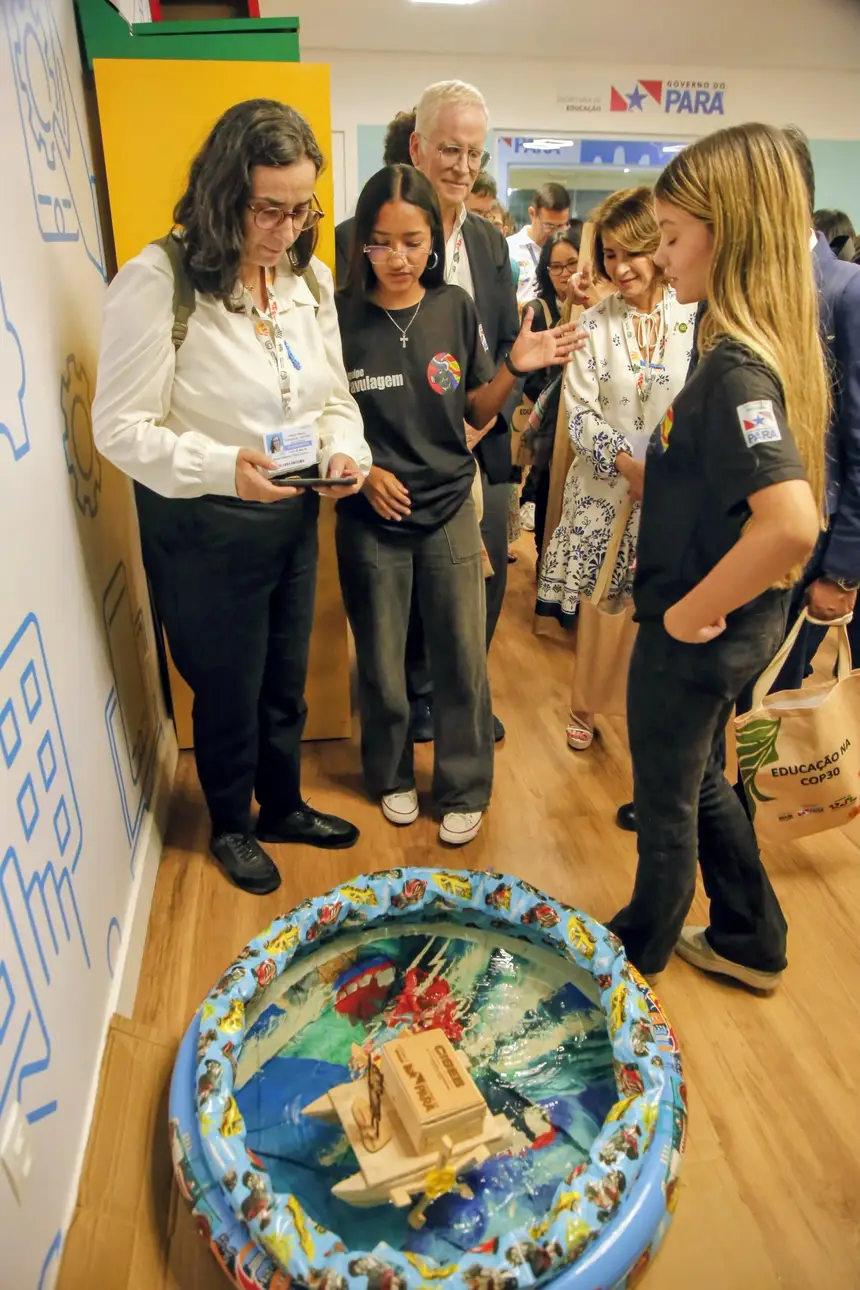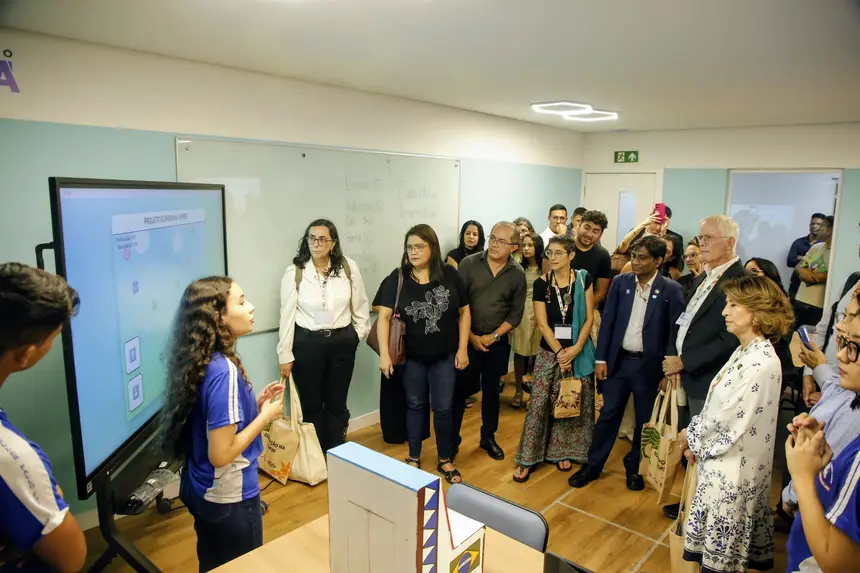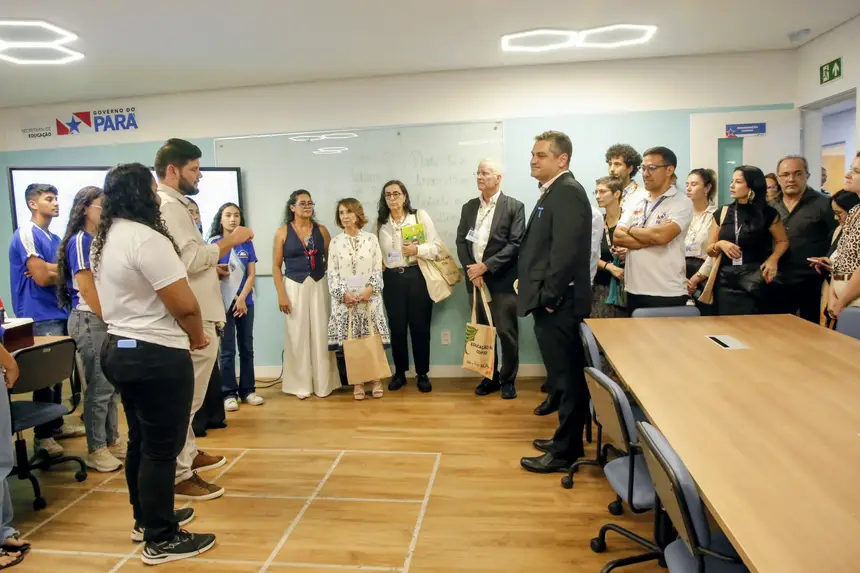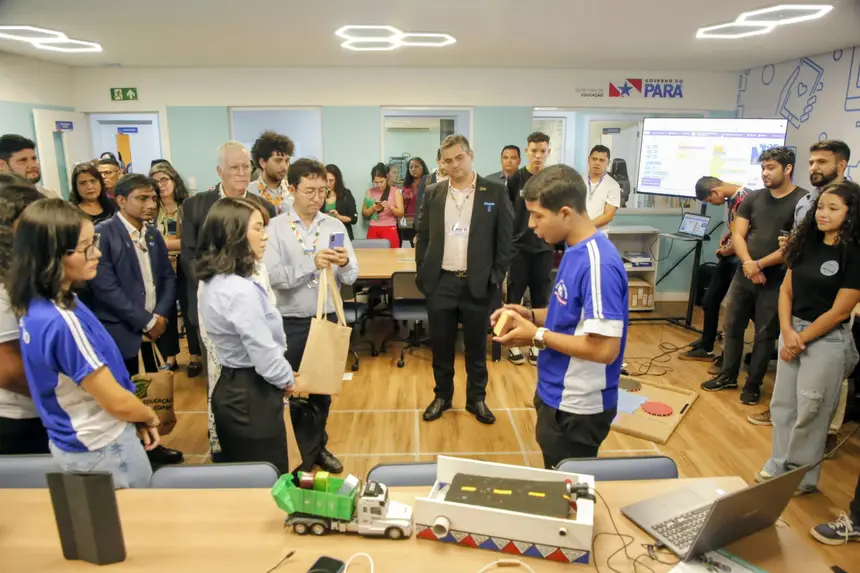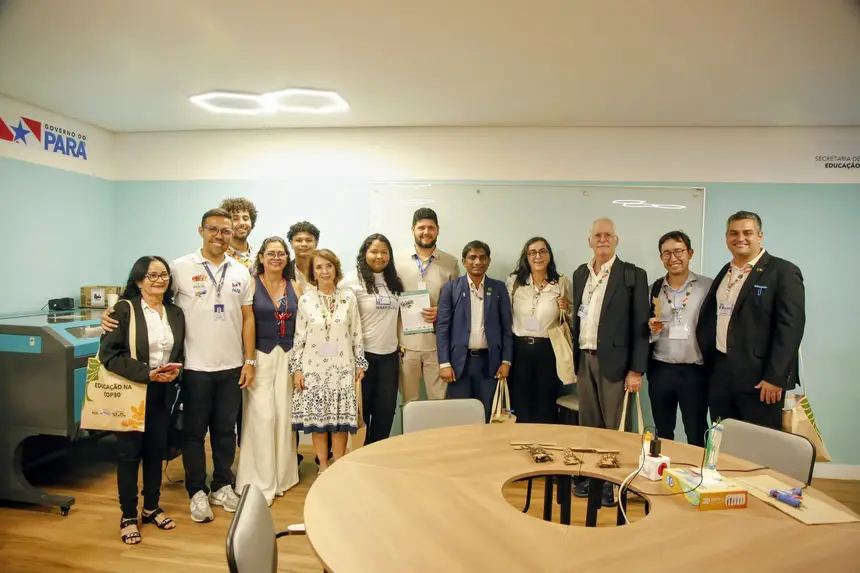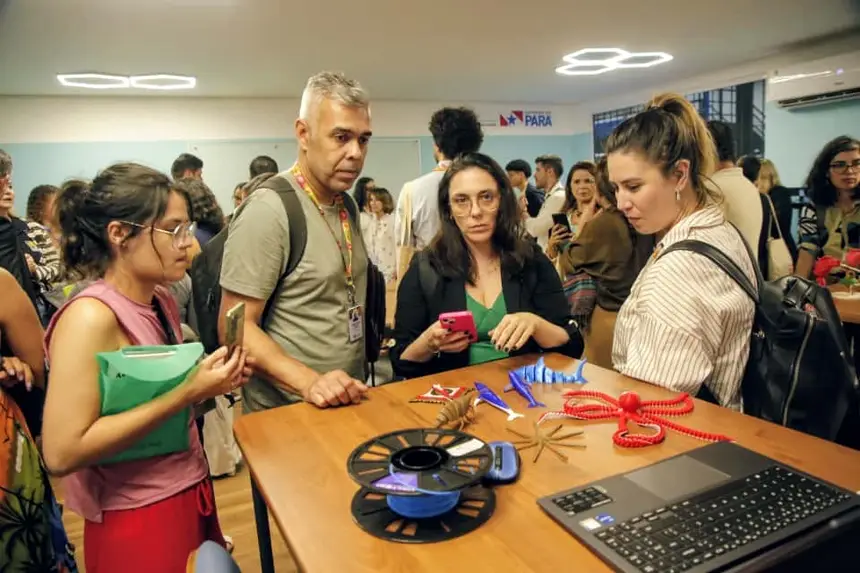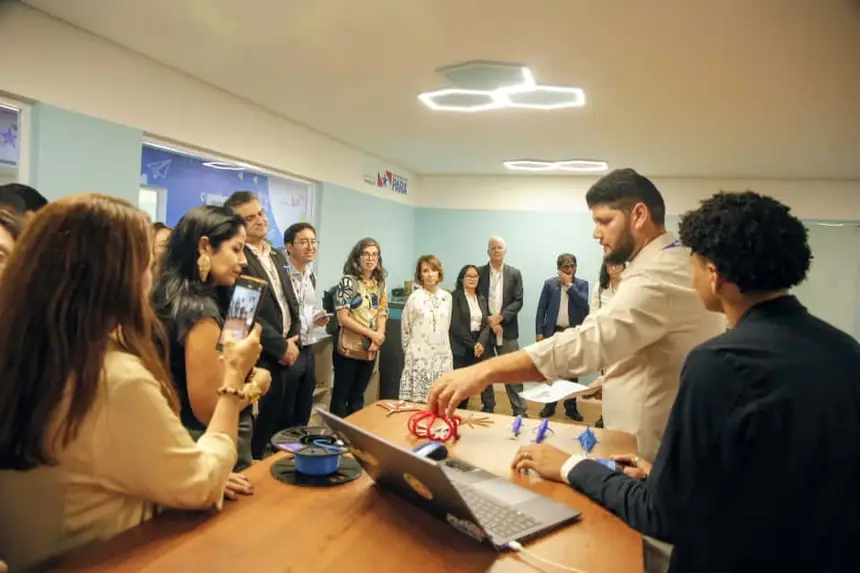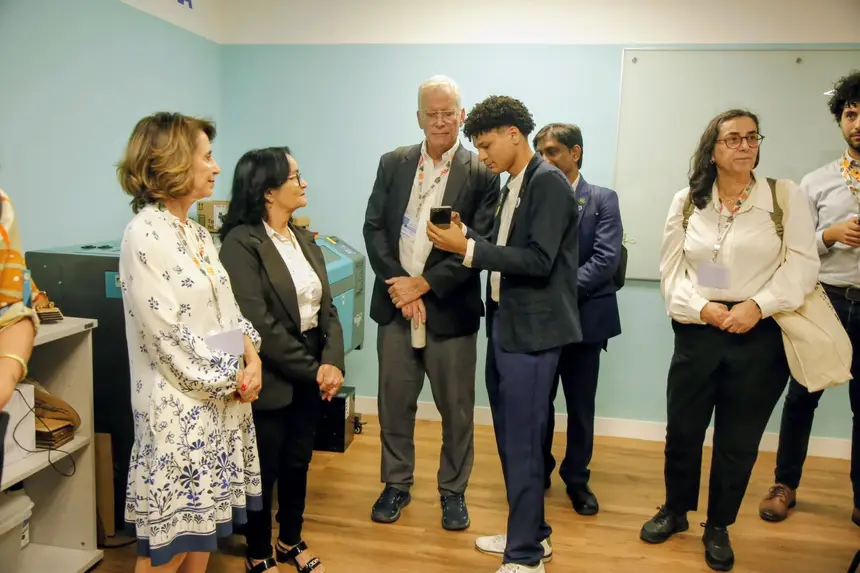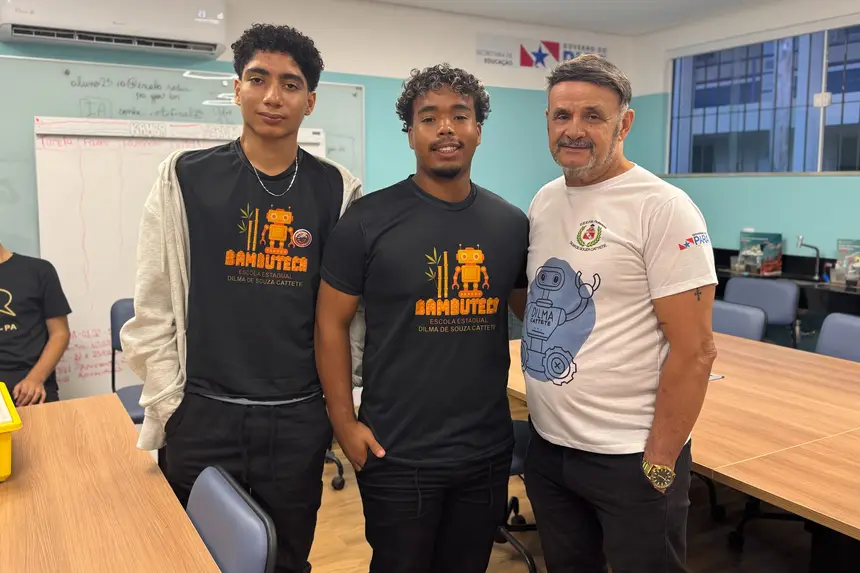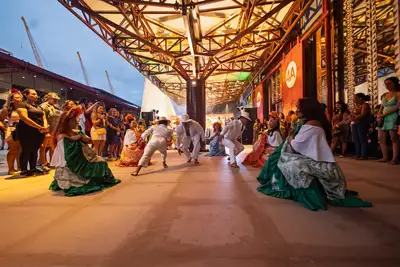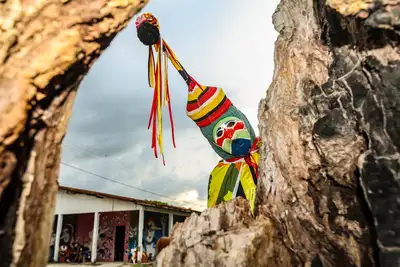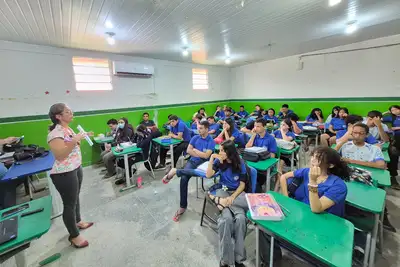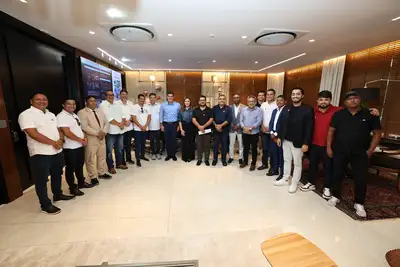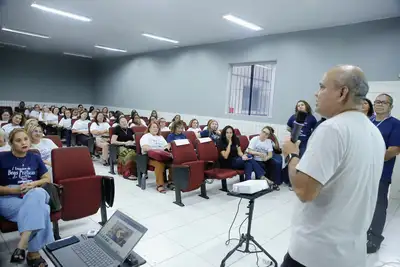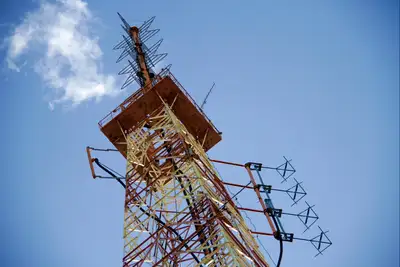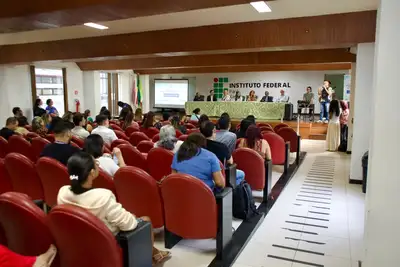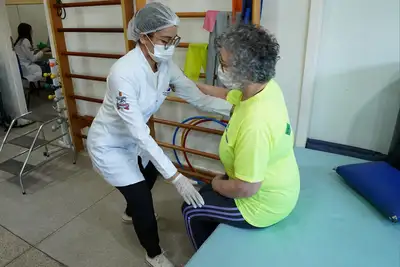Seduc Innovation Center receives technical visit from Unesco and strengthens student protagonism
CISEB was presented as a model of sustainable and digital education during the cooperation agenda with international organizations at COP30
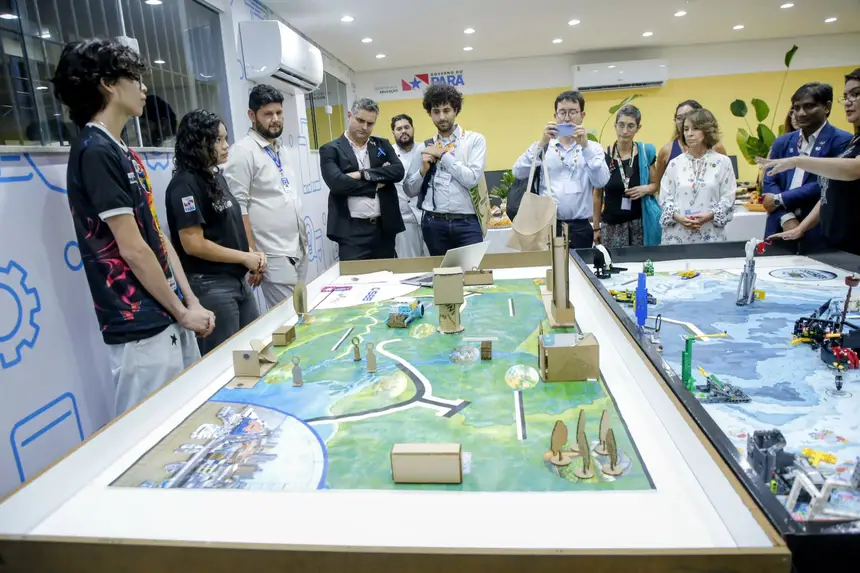
As part of the programming for the 30th United Nations Conference on Climate Change (COP30), the Innovation and Sustainability Center for Basic Education (CISEB), from the State Department of Education (Seduc), received a technical visit from the United Nations Educational, Scientific and Cultural Organization (Unesco) on Thursday (13). The agenda included representatives from the Organization for Economic Cooperation and Development (OECD) and the Ministry of Education (MEC).
The visit reinforces the international recognition of the educational initiatives developed in Pará and the strategic role of CISEB as a hub for digital innovation and sustainability, articulating teacher training, student protagonism, and pedagogical practices focused on the Amazonian reality.
Integration between education, environment, and technology
The State Secretary of Education, Ricardo Sefer, and the Director of Innovation at Seduc, Rafael Herdy, welcomed the delegation. During the visit, teachers and students presented the environments of CISEB, the ongoing projects, and the methodologies adopted.

“CISEB is a fundamental space in preparing Pará for COP30, as it integrates sustainability, technology, and citizenship education. This visit reaffirms the transformative potential of education when connected to the challenges of our time,” highlighted Secretary Ricardo Sefer.
Student protagonism and creative solutions
Student Jéssica Aguiar, from the 9th grade of Jarbas Passarinho State School, shared the experience of the robotics team “Pavulagem,” which develops innovative projects with an environmental and social focus.
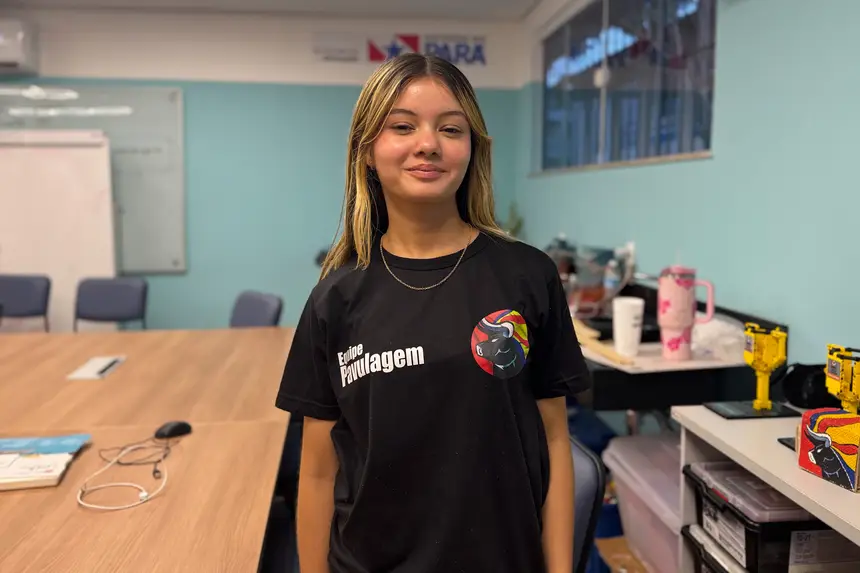
“It is very important for Unesco to come and see up close what we do here. We are student protagonists. We created the ‘Eco Pavu,’ a boat that collects solid waste in rivers, and the ‘Goeldi 360,’ an immersive video of the Goeldi Museum exhibition. Everything we do is thinking about the environment and our future,” explained Jéssica.
Innovation with Amazonian identity
CISEB is the first public center in Brazil focused on the integration of digital innovation and sustainability in basic education. Resulting from cooperation between Unesco and Huawei, through the Technology-enabled Open Schools for All project, the space offers ongoing teacher training and practical activities with local materials, such as miriti and bamboo, bringing technology closer to Amazonian experiences.
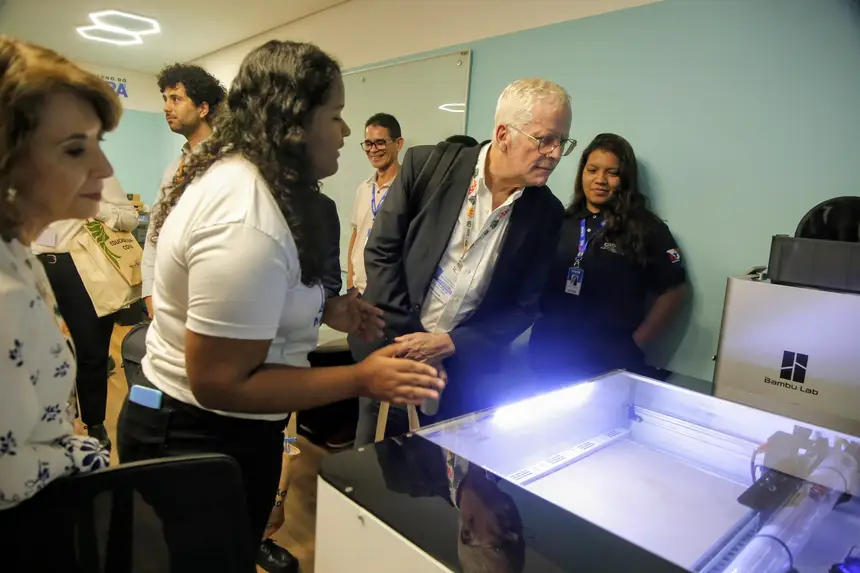
Among the permanent activities are workshops on robotics, programming, audiovisual, sustainable gardens, composting, and prototyping with 3D printers and laser cutters.
Physics teacher Ivan Amorim, from Dilma de Souza Catete State School, presented the project “Bambutec,” in which students use bamboo for water capture and reuse, combining generating bicycles and automated systems. “Our school uses the resources we have in abundance and transforms this into real learning. Unesco's visit is a recognition of the efforts of students and teachers,” he stated.
Sustainable projects with social impact
Among the projects developed by students at CISEB, the following stand out:
- Rivers of Connections: educational game about water preservation and biodiversity;
- Domestic Composter and School Seedbed: reuse of organic waste and seedling cultivation;
- Sustainable prototyping: models with 3D printer and laser cutter;
- Closed Terrarium and Miriti Laminator: union between science, art, and Amazonian culture;
- Sustainable games and carpets: playful materials aimed at environmental education.
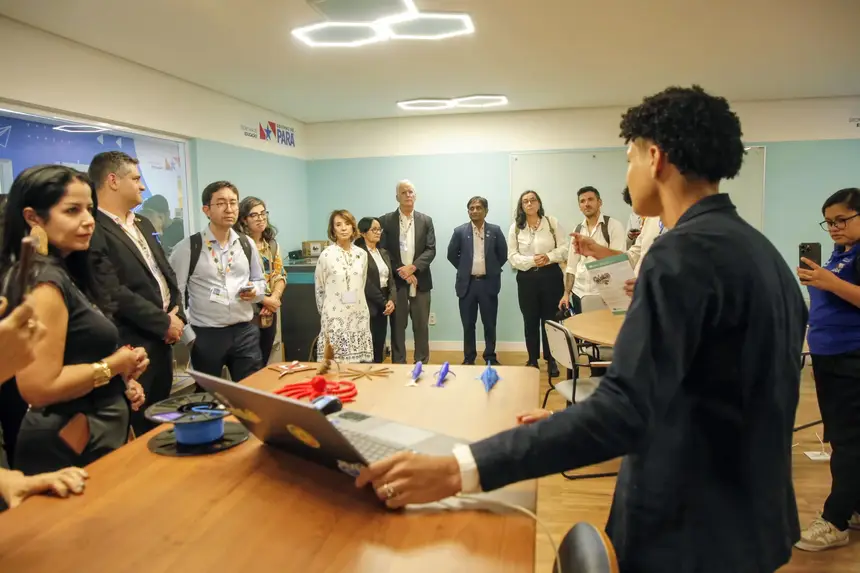
Education as a path to transformation
The visit to CISEB reinforces the commitment of the Government of Pará to a public education connected to the principles of sustainability, innovation, and inclusion. The space is a reference in good educational practices, focusing on the development of local solutions to global challenges, and symbolizes the strategic role of education in building a greener and more equitable future.




